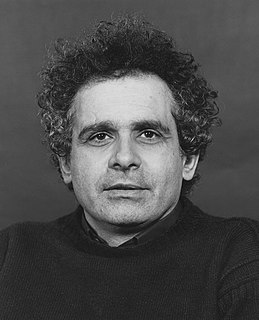 W
WMaurice Bloch is a British anthropologist who trained at the London School of Economics and Cambridge University. Famous for his fieldwork on the shift of agriculturalists in Madagascar, Japan and other parts of the world. Also wrote important Neo-Marxian Work on power, history, kinship, and ritual.
 W
WNed Joel Block is an American philosopher working in philosophy of mind who has made important contributions to the understanding of consciousness and the philosophy of cognitive science. He has been professor of philosophy and psychology at New York University since 1996.
 W
WJoan Lea Bybee is an American linguist and professor emerita at the University of New Mexico. Much of her work concerns grammaticalization, stochastics, modality, morphology, and phonology. Bybee is best known for proposing the theory of Usage-based phonology and for her contributions to cognitive and historical linguistics.
 W
WJosep Call is a Spanish comparative psychologist specializing in primate cognition.
 W
WAvram Noam Chomsky is an American linguist, philosopher, cognitive scientist, historian, social critic, and political activist. Sometimes called "the father of modern linguistics", Chomsky is also a major figure in analytic philosophy and one of the founders of the field of cognitive science. He is Laureate Professor of Linguistics at the University of Arizona and Institute Professor Emeritus at the Massachusetts Institute of Technology (MIT), and is the author of more than 150 books on topics such as linguistics, war, politics, and mass media. Ideologically, he aligns with anarcho-syndicalism and libertarian socialism.
 W
WPatricia Smith Churchland is a Canadian-American analytic philosopher noted for her contributions to neurophilosophy and the philosophy of mind. She is UC President's Professor of Philosophy Emerita at the University of California, San Diego (UCSD), where she has taught since 1984. She has also held an adjunct professorship at the Salk Institute for Biological Studies since 1989. She is a member of the Board of Trustees Moscow Center for Consciousness Studies of Philosophy Department, Moscow State University. In 2015, she was elected a Fellow of the American Academy of Arts & Sciences. Educated at the University of British Columbia, the University of Pittsburgh, and Somerville College, Oxford, she taught philosophy at the University of Manitoba from 1969 to 1984 and is married to the philosopher Paul Churchland. Larissa MacFarquhar, writing for The New Yorker, observed of the philosophical couple that: "Their work is so similar that they are sometimes discussed, in journals and books, as one person."
 W
W(Elizabeth) Anne Cutler FRS is a Research Professor at the MARCS Institute for Brain, Behaviour and Development, Western Sydney University and Emeritus Director of the Max Planck Institute for Psycholinguistics in Nijmegen.
 W
WStanislas Dehaene is a French author and cognitive neuroscientist whose research centers on a number of topics, including numerical cognition, the neural basis of reading and the neural correlates of consciousness. As of 2017, he is a professor at the Collège de France and, since 1989, the director of INSERM Unit 562, "Cognitive Neuroimaging".
 W
WDaniel Clement Dennett III is an American philosopher, writer, and cognitive scientist whose research centers on the philosophy of mind, philosophy of science, and philosophy of biology, particularly as those fields relate to evolutionary biology and cognitive science.
 W
WJanet Dean Fodor is distinguished professor of linguistics at the City University of New York. Her primary field is psycholinguistics, and her research interests include human sentence processing, prosody, learnability theory and L1 (first-language) acquisition.
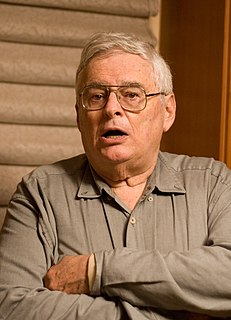 W
WJerry Alan Fodor was an American philosopher and the author of many crucial works in the fields of philosophy of mind and cognitive science. His writings in these fields laid the groundwork for the modularity of mind and the language of thought hypotheses, and he is recognized as having had "an enormous influence on virtually every portion of the philosophy of mind literature since 1960." Until his death in 2017 he held the position of State of New Jersey Professor of Philosophy, Emeritus, at Rutgers University.
 W
WBjörn Peter Gärdenfors is professor of cognitive science at the University of Lund, Sweden.
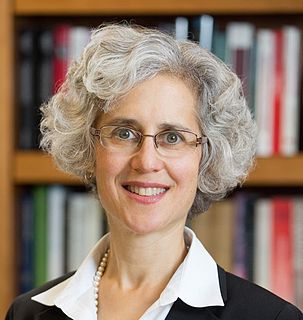 W
WSusan A. Gelman is currently Heinz Werner Distinguished University Professor of psychology and linguistics and the director of the Conceptual Development Laboratory at the University of Michigan. Her research focuses on cognitive development, language acquisition, categorization, inductive reasoning, causal reasoning, and the relationship between language and thought. Gelman subscribes to the domain specificity view of cognition, which asserts that the mind is composed of specialized modules supervising specific functions in the human and other animals.
 W
WGerd Gigerenzer is a German psychologist who has studied the use of bounded rationality and heuristics in decision making. Gigerenzer is director emeritus of the Center for Adaptive Behavior and Cognition (ABC) at the Max Planck Institute for Human Development and director of the Harding Center for Risk Literacy, both in Berlin, Germany.
 W
WSusan Goldin-Meadow is the Beardsley Ruml Distinguished Service Professor in the Departments of Psychology, Comparative Human Development, the college, and the Committee on Education at the University of Chicago. She is the principal investigator of a 10-year program project grant, funded by the National Institute of Child Health and Human Development, designed to explore the impact of environmental and biological variation on language growth. She is also a co-PI of the Spatial Intelligence and Learning Center (SILC), one of six Science of Learning Centers funded by the National Science Foundation to explore learning in an interdisciplinary framework with an eye toward theory and application. She is the founding editor of Language Learning and Development, the official journal of the Society for Language Development. She was President of the International Society for Gesture Studies from 2007–2012.
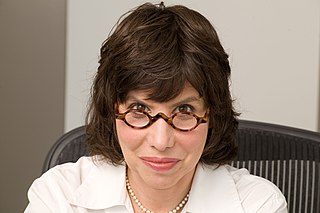 W
WAlison Gopnik is an American professor of psychology and affiliate professor of philosophy at the University of California, Berkeley. She is known for her work in the areas of cognitive and language development, specializing in the effect of language on thought, the development of a theory of mind, and causal learning. Her writing on psychology and cognitive science has appeared in Science, Scientific American, The Times Literary Supplement, The New York Review of Books, The New York Times, New Scientist, Slate and others. Her body of work also includes four books and over 100 journal articles.
 W
WGeoffrey Everest Hinton is a British-Canadian cognitive psychologist and computer scientist, most noted for his work on artificial neural networks. Since 2013, he has divided his time working for Google and the University of Toronto. In 2017, he co-founded and became the Chief Scientific Advisor of the Vector Institute in Toronto.
 W
WDouglas Richard Hofstadter is an American scholar of cognitive science, physics, and comparative literature whose research includes concepts such as the sense of self in relation to the external world, consciousness, analogy-making, artistic creation, literary translation, and discovery in mathematics and physics. His 1979 book Gödel, Escher, Bach: An Eternal Golden Braid won both the Pulitzer Prize for general nonfiction and a National Book Award for Science. His 2007 book I Am a Strange Loop won the Los Angeles Times Book Prize for Science and Technology.
 W
WKeith James Holyoak is a Canadian-American researcher in cognitive psychology and cognitive science, working on human thinking and reasoning. Holyoak's work focuses on the role of analogy in thinking. His work showed how analogy can be used to enhance learning of new abstract concepts by both children and adults, as well as how reasoning breaks down in cases of brain damage.
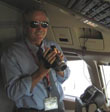 W
WEdwin Hutchins is a professor and former department head of cognitive science at the University of California, San Diego. Hutchins is one of the main developers of distributed cognition.
 W
WRay Jackendoff is an American linguist. He is professor of philosophy, Seth Merrin Chair in the Humanities and, with Daniel Dennett, co-director of the Center for Cognitive Studies at Tufts University. He has always straddled the boundary between generative linguistics and cognitive linguistics, committed to both the existence of an innate universal grammar and to giving an account of language that is consistent with the current understanding of the human mind and cognition.
 W
WDaniel Kahneman is an Israeli psychologist and economist notable for his work on the psychology of judgment and decision-making, as well as behavioral economics, for which he was awarded the 2002 Nobel Memorial Prize in Economic Sciences. His empirical findings challenge the assumption of human rationality prevailing in modern economic theory.
 W
WGeorge Philip Lakoff is an American cognitive linguist and philosopher, best known for his thesis that people's lives are significantly influenced by the conceptual metaphors they use to explain complex phenomena.
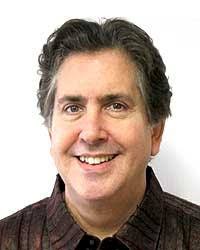 W
WDouglas Bruce Lenat is the CEO of Cycorp, Inc. of Austin, Texas, and has been a prominent researcher in artificial intelligence; he was awarded the biannual IJCAI Computers and Thought Award in 1976 for creating the machine learning program, AM. He has worked on machine learning, knowledge representation, "cognitive economy", blackboard systems, and what he dubbed in 1984 "ontological engineering". He has also worked in military simulations, and numerous projects for US government, military, intelligence, and scientific organizations. In 1980, he published a critique of conventional random-mutation Darwinism. He authored a series of articles in the Journal of Artificial Intelligence exploring the nature of heuristic rules.
 W
WWillem Johannes Maria (Pim) Levelt is a Dutch psycholinguist. He is an influential researcher of human language acquisition and speech production. He developed a comprehensive theory of the cognitive processes involved in the act of speaking, including the significance of the "mental lexicon". Levelt was the founding director of the Max Planck Institute for Psycholinguistics in Nijmegen. He also served as president of the Royal Netherlands Academy of Arts and Sciences between 2002 and 2005, of which he has been a member since 1978.
 W
WJohn McCarthy was an American computer scientist and cognitive scientist. McCarthy was one of the founders of the discipline of artificial intelligence. He co-authored the document that coined the term "artificial intelligence" (AI), developed the Lisp programming language family, significantly influenced the design of the ALGOL programming language, popularized time-sharing, and invented garbage collection.
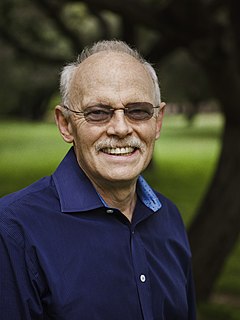 W
WJames Lloyd "Jay" McClelland, FBA is the Lucie Stern Professor at Stanford University, where he was formerly the chair of the Psychology Department. He is best known for his work on statistical learning and Parallel Distributed Processing, applying connectionist models to explain cognitive phenomena such as spoken word recognition and visual word recognition. McClelland is to a large extent responsible for the large increase in scientific interest in connectionism in the 1980s.
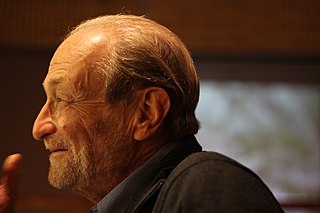 W
WJacques Mehler was a cognitive psychologist specializing in language acquisition.
 W
WGeorge Armitage Miller was an American psychologist who was one of the founders of cognitive psychology, and more broadly, of cognitive science. He also contributed to the birth of psycholinguistics. Miller wrote several books and directed the development of WordNet, an online word-linkage database usable by computer programs. He authored the paper, "The Magical Number Seven, Plus or Minus Two," in which he observed that many different experimental findings considered together reveal the presence of an average limit of seven for human short-term memory capacity. This paper is frequently cited by psychologists and in the wider culture. Miller won numerous awards, including the National Medal of Science.
 W
WBrenda Milner is a British-Canadian neuropsychologist who has contributed extensively to the research literature on various topics in the field of clinical neuropsychology. As of 2010, Milner is a professor in the Department of Neurology and Neurosurgery at McGill University and a professor of Psychology at the Montreal Neurological Institute. As of 2005, she holds more than 20 degrees and continues to work in her nineties. Her current work covers many aspects of neuropsychology including her lifelong interest in the involvement of the temporal lobes in episodic memory. She is sometimes referred to as "the founder of neuropsychology" and has proven to be an essential key in its development. She received the Balzan Prize for Cognitive Neuroscience, in 2009, and the Kavli Prize in Neuroscience, together with John O'Keefe, and Marcus E. Raichle, in 2014. She turned 100 in July 2018 and at the time was still overseeing the work of researchers.
 W
WMarvin Lee Minsky was an American cognitive and computer scientist concerned largely with research of artificial intelligence (AI), co-founder of the Massachusetts Institute of Technology's AI laboratory, and author of several texts concerning AI and philosophy.
 W
WHelen J. Neville was a Canadian psychologist and neuroscientist known internationally for her research in the field of human brain development.
 W
WNora S. Newcombe is the Laura H. Carnell Professor of Psychology and the James H. Glackin Distinguished Faculty Fellow at Temple University. She is a Canadian-American researcher in cognitive development, cognitive psychology and cognitive science, working on the development of spatial thinking and reasoning and on the development of episodic memory. She was the principal investigator of the Spatial Intelligence and Learning Center, one of six NSF-funded Science of Learning Centers.
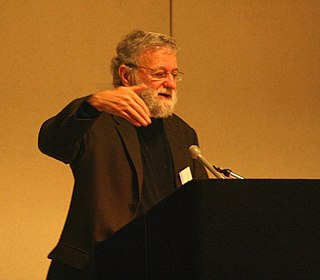 W
WDonald Arthur Norman is an American researcher, professor, and author. Norman is the director of The Design Lab at University of California, San Diego. He is best known for his books on design, especially The Design of Everyday Things. He is widely regarded for his expertise in the fields of design, usability engineering, and cognitive science. He is a co-founder and consultant with the Nielsen Norman Group. He is also an IDEO fellow and a member of the Board of Trustees of IIT Institute of Design in Chicago. He also holds the title of Professor Emeritus of Cognitive Science at the University of California, San Diego. Norman is an active Distinguished Visiting Professor at the Korea Advanced Institute of Science and Technology (KAIST), where he spends two months a year teaching.
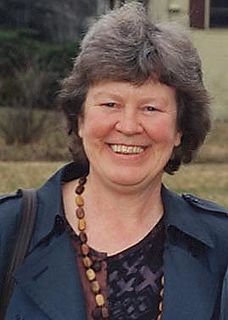 W
WBarbara Hall Partee is a Distinguished University Professor Emerita of Linguistics and Philosophy at the University of Massachusetts Amherst (UMass). She is one of the founders of contemporary formal semantics in the United States, the author of a number of influential works. She was a founding co-editor of the Annual Review of Linguistics in 2015. She retired from UMass in September 2004.
 W
WJudea Pearl is an Israeli-American computer scientist and philosopher, best known for championing the probabilistic approach to artificial intelligence and the development of Bayesian networks. He is also credited for developing a theory of causal and counterfactual inference based on structural models. In 2011, the Association for Computing Machinery (ACM) awarded Pearl with the Turing Award, the highest distinction in computer science, "for fundamental contributions to artificial intelligence through the development of a calculus for probabilistic and causal reasoning". He is the author of several books, including the technical Causality: Models, Reasoning and Inference, and The Book of Why, a book on causality aimed at the general public.
 W
WJanet Pierrehumbert is Professor of Language Modeling in the Oxford e-Research Centre at the University of Oxford and a senior research fellow of Trinity College, Oxford. She developed an intonational model which includes a grammar of intonation patterns and an explicit algorithm for calculating pitch contours in speech, as well as an account of intonational meaning. It has been widely influential in speech technology, psycholinguistics, and theories of language form and meaning. Pierrehumbert is also affiliated with the New Zealand Institute of Language Brain and Behaviour at the University of Canterbury.
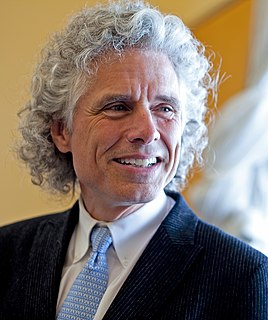 W
WSteven Arthur Pinker is a Canadian-American cognitive psychologist, linguist, and popular science author. He is an advocate of evolutionary psychology and the computational theory of mind.
 W
WMichael I. Posner is an American psychologist who is a researcher in the field of attention, and the editor of numerous cognitive and neuroscience compilations. He is emeritus professor of psychology at the University of Oregon, and an adjunct professor at the Weill Medical College in New York. A Review of General Psychology survey, published in 2002, ranked Posner as the 56th most cited psychologist of the 20th century.
 W
WDavid Everett Rumelhart was an American psychologist who made many contributions to the formal analysis of human cognition, working primarily within the frameworks of mathematical psychology, symbolic artificial intelligence, and parallel distributed processing. He also admired formal linguistic approaches to cognition, and explored the possibility of formulating a formal grammar to capture the structure of stories.
 W
WRoger Newland Shepard is an American cognitive scientist and author of the "universal law of generalization" (1987). He is considered a father of research on spatial relations. He studied mental rotation, and was an inventor of non-metric multidimensional scaling, a method for representing certain kinds of statistical data in a graphical form that can be apprehended by humans. The optical illusion called Shepard tables and the auditory illusion called Shepard tones are named for him.
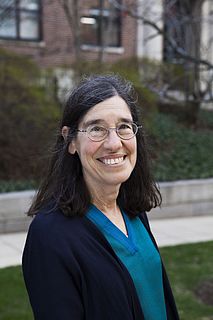 W
WElizabeth Shilin Spelke FBA is an American cognitive psychologist at the Department of Psychology of Harvard University and director of the Laboratory for Developmental Studies.
 W
WDan Sperber is a French social and cognitive scientist and philosopher. His most influential work has been in the fields of cognitive anthropology, linguistic pragmatics, psychology of reasoning, and philosophy of the social sciences. He has developed: an approach to cultural evolution known as the epidemiology of representations or cultural attraction theory as part of a naturalistic reconceptualization of the social; relevance theory; the argumentative theory of reasoning. Sperber formerly Directeur de Recherche at the Centre National de la Recherche Scientifique is Professor in the Departments of Cognitive Science and of Philosophy at the Central European University in Budapest.
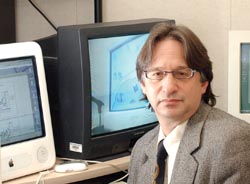 W
WMichael Tanenhaus is an American psycholinguist, author, and lecturer. He is the Beverly Petterson Bishop and Charles W. Bishop Professor of Brain and Cognitive Sciences and Linguistics at the University of Rochester. From 1996–2000 and 2003–2009 he served as Director of the Center for Language Sciences at the University of Rochester.
 W
WAnne Marie Treisman was an English psychologist who specialised in cognitive psychology.
 W
WShimon Ullman is a professor of computer science at the Weizmann Institute of Science, Israel. Ullman's main research area is the study of vision processing by both humans and machines. Specifically, he focuses on object and facial recognition, and has made a number of key insights in this field, including with Christof Koch the idea of a visual saliency map in the mammalian visual system to regulate selective spatial attention.
 W
WJanet F. Werker is a researcher in the field of developmental psychology. She researches the foundations of monolingual and bilingual infant language acquisition in infants at the University of British Columbia's Infant Studies Centre. Her research has pioneered what are now accepted baselines in the field, showing that language learning begins in early infancy and is shaped by experience across the first year of life.